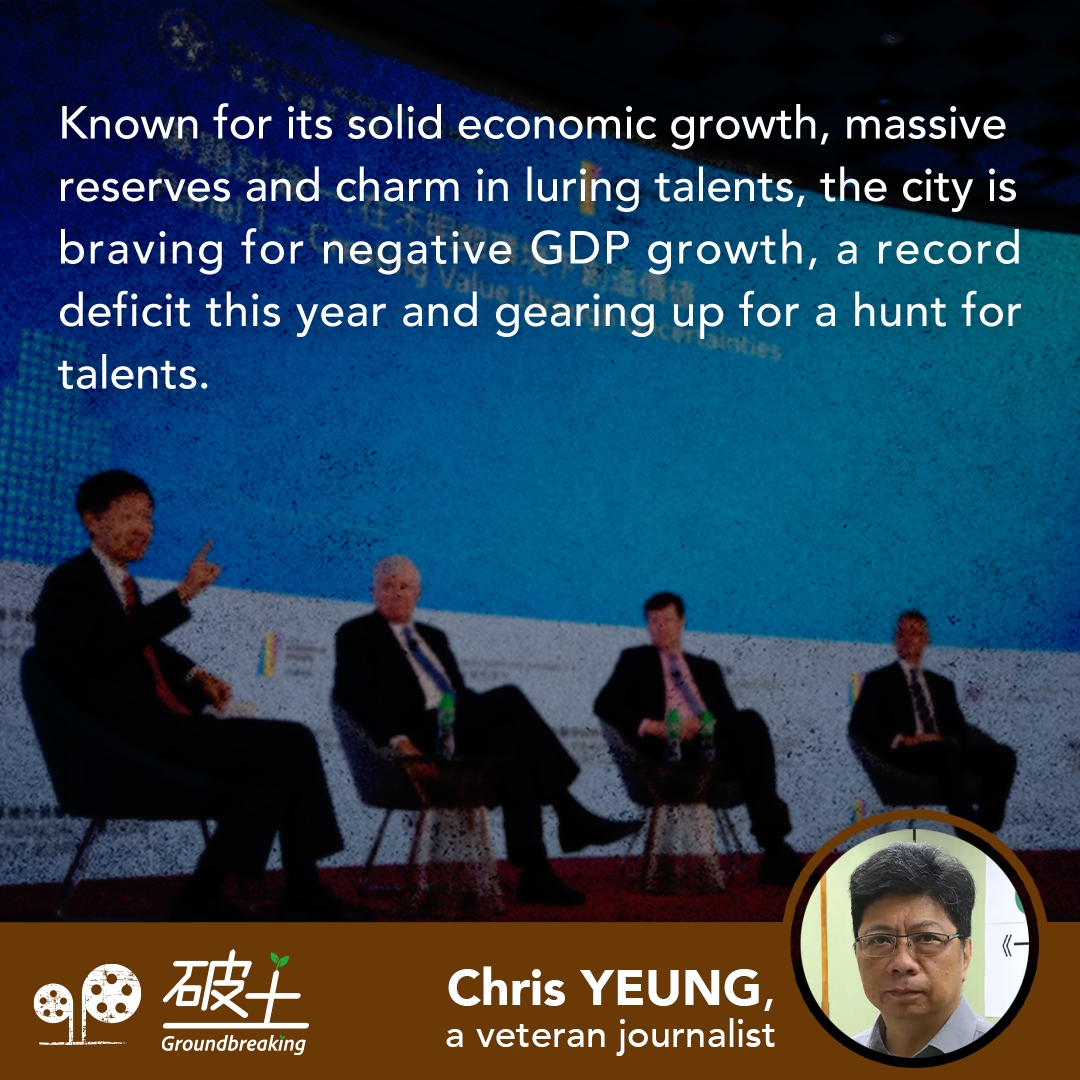The abnormality of Hong Kong’s new normal

By hosting what is billed as the largest gathering of global financial leaders in the city since 2019, Hong Kong’s quasi-central bank, with the full backing of the Government and Beijing, has one simple story to tell: Hong Kong is back to normal. Come and do business!
Three years after the outbreak of social unrest in mid-2019, which was soon followed by the Covid pandemic months later, the Hong Kong government led by Chief Executive John Lee is keen to tell the world the city is on the track towards normalcy.
Speaking at the opening of the Global Financial Leaders’ Investment Summit at the six-star Four Seasons Hotel on Wednesday (2/11), Lee said he would like to call it the “Hong Kong Onstage Again Summit”.
He told participants: “Despite the troubled world we live in, you apparently don’t quite feel it from Hong Kong.”
Lee went on to illustrate how the city is back to what it was. Streets are safe. “Social disturbance”, referring to the 2019 social movement, “is clearly in the past.” “It has given way to stability, to growing business and community confidence in Hong Kong’s future. Law and order has returned. The worst is behind us.”
Despite the massive publicity of the message of a restart of the city, there is no shortage of evidence showing Hong Kong is anything but normal. Returning to normalcy sounds more like a slogan than the reality.
Start with John Lee. Beijing’s pick of Lee, who joined the Government as police inspector in the 1980s, would have been dismissed as one of the least likely would-be chief executives, judging from the “normal” thinking of the previous Beijing leaders.
Lee, whose decades of service in the Government were almost entirely security-related, might have never imagined he would be delivering a speech in English to a group of 200-odd elites in international finance at this time of his life.
An international media outlet has reminded readers in a report on the summit Lee is one of the Hong Kong officials on the list of sanctions by the United States government for his alleged role in curtailing freedoms.
For many of the pack of financial leaders who have not paid a visit to the city since 2019, they would have no difficulty in getting a taste of the new experience of quarantine requirements for inbound travelers as soon as they arrived at Chek Lap Kok airport.
If not for a special exemption, they would not be able to join a tour-plus-welcome dinner at the M+ in the West Kowloon Cultural District on Tuesday, one day before the summit kicked off.
Thanks to another exemption order, they could be rest assured of not being penalised for putting off their masks at the conference.
If any, it is a case of back to normalcy with special arrangements.
In his speech delivered in English with Hongkongers’ characteristics, Lee has sought to play up the unique advantage of Hong Kong being “the only place in the world where the global advantage and the China advantage come together in a single city.” Beaming self-confidence, he said: “Hong Kong’s seamless connection with the mainland affords Hong Kong advantages available to no other economy.”
This unique convergence, Lee said, makes Hong Kong the irreplaceable connection between the mainland and the rest of the world.
Minutes after he spoke, the financial leaders gained an update of the “seamless connection” when they listened to the pre-recorded videos of interviews with several key speakers from the mainland.
There was no public explanation of why they did not turn up in person. But it is apparently because of the tight anti-Covid measures adopted on the mainland.
The virtual participation of the mainland financial heavyweights is an unwelcome reminder of the existing anti-Covid barriers that have made the role of what Lee called “the irreplaceable connection” Hong Kong could play a virtual reality.
If there is any lesson Hong Kong has learned from the double blow caused by the 2019 turbulence and the Covid pandemic, it is the damaging power of official blunders and unknown viruses.
The past two years saw the departure of 140,000 people from the city, many of whom in their 20s and 30s, the fleeing of financial executives, the vanishing of pro-democracy voices, the functioning of national security enforcement teams and drastic changes in the education system at all levels, among others.
Known for its solid economic growth, massive reserves and charm in luring talents, the city is braving for negative GDP growth, a record deficit this year and gearing up for a hunt for talents.
In his just-announced policy address, Lee announced the setting up of a new office armed with incentives of various kinds to “trawl the world for talents.” In a departure from its longstanding “small government, big market” philosophy, the Government will set up a new investment arm similar to Singapore’s Temasek to lure investments.
The list of changes unfolded in the city since 2019 could not be more fascinating and thought-provoking.
Against the background of those changes, the proclamation of “Hong Kong is back to normal” by SAR officials sounds elusive.
Welcome to the new normal in new Hong Kong.
▌[At Large] About the Author
Chris Yeung is a veteran journalist, a founder and chief writer of the now-disbanded CitizenNews; he now runs a daily news commentary channel on Youtube. He had formerly worked with the South China Morning Post and the Hong Kong Economic Journal.